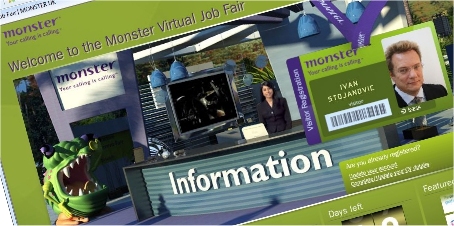Social Networks are here! Recruitment and sourcing in particular is changing. Job Boards that the recruitment agencies have been relying for as their main source of candidates are getting smaller role to play today. The future for the job boards is not extremely bright either. Their dominance is being replaced by the social networks. There are more and better candidates using social networks than job boards. Recruiters had to follow the trend – moving their business of the job boards – to the social networks.
Job boards will not really die tomorrow. Job boards will still have their place in the online recruitment world. Most of them in a bit different shape or form. They will serve as repository for active jobs, and feed their data to the web sites with the high ant targeted traffic (do you recognise the description of a social network here?).
A lot of the recruiters are not extremely happy with the way that social networking sites are changing the recruitment. They feel the threatened. Why? They feel that they will be bypassed since employers will be able to source and recruit directly on the social networking web sites. Those recruiters go that far that they themselves do not use the social networks, trying to stop the wheel of change.
The change is here. And more of it is coming. Embrace it. Don’t fight it. Resistance is futile.
Online recruitment as well as any online business are changing. Changing constantly and rapidly (Microsoft: At the Speed of Light). Adoption spread and growth of the Internet fuel the acceleration of the change of Internet itself. Market penetration phase is shortening, and the market reach is growing.
Social networks are NOT the end of the recruitment agencies.
Internet brought the quick and cheap advertising to the recruiters 15 years ago in a form of job boards. Employers used them as well as recruitment agents. Both successfully. Both competed for the same candidate. Social networks are no different. Both direct employers and recruitment consultants will use them. If used right, social networks will be (are today!) extremely beneficial in the recruitment process. Does this mean the end of the tunnel for the recruitment agencies? Absolutely not! Recruitment agents have their place in the recruitment process, and will always have it as long as they add value. The tools they use will always the be the tools that are on the disposal of the employers as well. Social networks today, and whatever comes along tomorrow.




